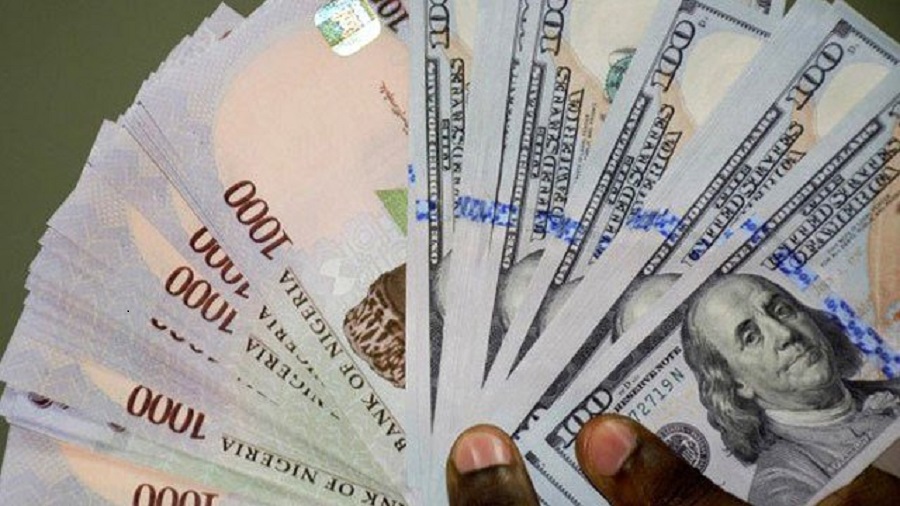Economy
Nigeria Records 36.3% Rise in Insurance Premium in Q4 2022

By Adedapo Adesanya
The National Insurance Commission (NAICOM) has said that Nigeria’s insurance industry recorded a 36.3 per cent quarter-on-quarter growth and 17.8 per cent year-on-year improvement in gross premium income at N726.2 billion in the fourth quarter of 2022.
According to a bulletin released by the country’s insurance sector regulator, this was a remarkable situation compared to the real growth (3.5 per cent) of the Gross Domestic Product (GDP) over the same period.
This development was attributed to the consistent regulatory measures being carried out by the commission.
It also said the non-life business, as in the prior periods, continued its dominance, contributing about 57.4 per cent relative to the share of the life business at 42.6 per cent, keeping about the same position in the prior period.
“The proportional significance of life in the industry was sustained a positive course in recent times reflective of the consumer’s confidence and awareness,” it said.
An in-depth analysis of the non-life segment of the market shows the oil & gas business sustaining its market share dominance at 30.25 per cent, increasing by two points (2.4 per cent) compared to the previous quarter.
The figure posted by fire insurance came a distant second at 22.2 per cent, maintaining the same pattern of contribution to the gross premium pool of the market, while motor insurance at 14.9 per cent, marine & aviation at 12.2 per cent, general accident at 11.1 per cent, and miscellaneous at 9.5 per cent followed in that order.
On the other hand, life business was driven by individual life portfolio (38.6 per cent) even as its relative contribution fell by about (2.6 per cent) compared to the third quarter (41.6 per cent).
The bulletin added, “In a contrasting path to the previous quarter, group life followed by about 34.5 per cent while annuity business contributed gross premium income of about 26.9 per cent during the period.
“In the phase of operational challenges posed in domestic and global economies, the industry continues to post inspiring numbers in business retention, reflective of the market resilience and increasing capacity. In the period under review, the industry-wide average retention ratio stood at about 71.3 per cent, although slightly a point lower than it held in the previous quarter and four points lower in comparison to the same period (YoY).
“Persistently, the life business retained about the same point of 93.3 per cent from its prior position of 93.8 per cent in quarter three.
“In the non-life segment, which also took a similar pattern, motor insurance continued its lead as the highest retaining portfolio with a retention ratio of about 93.5 per cent, a point higher than its standing in the prior quarter.
Oil & Gas recorded the least at about 35.9 per cent. The oil and gas portfolio remained a challenging angle in the market owing to its nature of enormous capital and professional requirements.
“Consequently, the retention performance in the current period sustained its prior position when compared to the third quarter as evidenced by the overall non-life business ratio of 55.0 per cent, slipping from about 56.6 per cent held in the prior period.”
“Claims reported during the fourth quarter stood at N318.2 billion, representing a 31.2 per cent QoQ growth. Possible attainment as a result of growing awareness and Market expansion as well as consumer confidence. In a similar pattern, the net claims paid were reported at N244.3 billion, growing at about 17.9 per cent QoQ during the same period.
“Insights into the non-life segment shows that motor insurance led with regards to claims settlement vis a vis gross claims reported at about 92.3 per cent signifying a nine points improvement as against its prior position.
“Fire insurance was the least at about 46.3 per cent, the only class below average proportion. All other portfolios of general accident insurance (80.7 per cent), oil & gas (51.6 per cent), marine & aviation (74.4 per cent), and miscellaneous insurances (86.1 per cent) recorded a proportion above the average of paid claims against gross claims reported.
“Life insurance business, on the other hand, reported two points less in comparison to the position held in the prior period of 94.6 per cent of net claims paid compared to total claims reported during the same period of 2021,” the bulletin added.
Economy
NASD Bourse Rebounds as Unlisted Security Index Rises 1.27%

By Adedapo Adesanya
The NASD Over-the-Counter (OTC) Securities Exchange expanded for the first session this week by 1.27 per cent on Wednesday, February 25.
This lifted the NASD Unlisted Security Index (NSI) above 4,000 points, with a 50.45-point addition to close at 4,025.25 points compared with the previous day’s 3,974.80 points, as the market capitalisation added N30.19 billion to close at N2.408 trillion versus Tuesday’s N2.378 trillion.
At the trading session, FrieslandCampina Wamco Nigeria Plc grew by N5.00 to trade at N100.00 per share compared with the previous day’s N95.00 per share, Central Securities Clearing System (CSCS) Plc improved by N4.18 to sell at N70.00 per unit versus N65.82 per unit, and First Trust Mortgage Bank Plc increased by 14 Kobo to trade at N1.59 per share compared with the previous day’s N1.45 per share.
However, the share price of Geo-Fluids Plc depreciated by 27 Kobo at midweek to close at N3.27 per unit, in contrast to the N3.30 per unit it was transacted a day earlier.
At the midweek session, the volume of securities went down by 25.3 per cent to 8.7 million units from 11.6 million units, the value of securities decreased by 92.5 per cent to N80.7 million from N1.2 billion, and the number of deals slipped by 33.3 per cent to 32 deals from the preceding session’s 48 deals.
At the close of business, CSCS Plc remained the most traded stock by value on a year-to-date basis with 34.1 million units exchanged for N2.0 billion, trailed by Okitipupa Plc with 6.3 million units traded for N1.1 billion, and Geo-Fluids Plc with 122.0 million units valued at N478.0 million.
Resourcery Plc ended the trading session as the most traded stock by volume on a year-to-date basis with 1.05 billion units valued at N408.7 million, followed by Geo-Fluids Plc with 122.0 million units sold for N478.0 million, and CSCS Plc with 34.1 million units worth N2.0 billion.
Economy
Investors Lose N73bn as Bears Tighten Grip on Stock Exchange

By Dipo Olowookere
The bears consolidated their dominance on the Nigerian Exchange (NGX) Limited on Wednesday, inflicting an additional 0.09 per cent cut on the market.
At midweek, the market capitalisation of the domestic stock exchange went down by N73 billion to N124.754 trillion from the preceding day’s N124.827 trillion, and the All-Share Index (ASI) slipped by 114.32 points to 194,370.20 points from 194,484.52 points.
A look at the sectoral performance showed that only the consumer goods index closed in green, gaining 1.19 per cent due to buying pressure.
However, sustained profit-taking weakened the insurance space by 3.79 per cent, the banking index slumped by 2.07 per cent, the energy counter went down by 0.24 per cent, and the industrial goods sector shrank by 0.22 per cent.
Business Post reports that 25 equities ended on the gainers’ chart, and 54 equities finished on the losers’ table, representing a negative market breadth index and weak investor sentiment.
RT Briscoe lost 10.00 per cent to sell for N10.35, ABC Transport crashed by 10.00 per cent to N6.75, SAHCO depreciated by 9.98 per cent to N139.35, Haldane McCall gave up 9.93 per cent to trade at N3.99, and Vitafoam Nigeria decreased by 9.93 per cent to N112.50.
Conversely, Jaiz Bank gained 9.95 per cent to settle at N14.03, Okomu Oil appreciated by 9.93 per cent to N1,765.00, Trans-nationwide Express chalked up 9.77 per cent to close at N2.36, Fortis Global Insurance moved up by 9.72 per cent to 79 Kobo, and Champion Breweries rose by 5.39 per cent to N17.60.
Yesterday, 1.4 billion shares worth N46.2 billion were transacted in 70,222 deals compared with the 1.1 billion shares valued at N53.4 billion traded in 72,218 deals a day earlier, implying a rise in the trading volume by 27.27 per cent, and a decline in the trading value and number of deals by 13.48 per cent and 2.76 per cent, respectively.
Fortis Global Insurance ended the session as the busiest stock after trading 193.7 million units for N152.7 million, Zenith Bank transacted 120.7 million units worth N11.1 billion, Japaul exchanged 114.8 million units valued at N407.0 million, Ellah Lakes sold 98.4 million units worth N999.2 million, and Access Holdings traded 63.1 million units valued at N1.7 billion.
Economy
Naira Extends Losing Streak, Falls to N1,356/$1 at NAFEX

By Adedapo Adesanya
A 74 Kobo or 0.05 per cent decline was recorded by the Naira against the United States Dollar in the Nigerian Autonomous Foreign Exchange Market (NAFEX) on Wednesday, February 25, trading at N1,356.11/$1 compared with the N1,355.37/$1 it was traded on Tuesday.
The Nigerian currency also further depreciated against the Pound Sterling during the session in the official market by N6.70 to settle at N1,834.96/£1 versus the preceding day’s rate of N1,828.26/£1, and against the Euro, it tumbled by N4.94 to quote at N1,598.59/€1 compared with the previous session’s N1,596.36/€1.
In the same vein, the Nigerian Naira lost N6 against the Dollar at the GTBank forex desk to close at N1,367/$1, in contrast to N1,361/$1 it was exchanged a day earlier, and in the parallel market, it traded flat at N1,365/$1.
The continuation of the decline of the local currency has been tied to the Central Bank of Nigeria (CBN) buying US Dollars from the market to slow the rapid rise of the Naira.
The apex bank bought about $189.80 million to reduce excess Dollar supply and control how fast the Naira was gaining value.
The monetary policy committee (MPC) of the CBN on Tuesday reduced interest rates by 50 basis points to 26.50 per cent from 27 per cent after inflation eased in January 2026, a move analysts say is the best not to unsettle FX market, especially the Foreign Portfolio Investors (FPI_ inflows which have anchored much of the recent supply and weakened the recently restored monetary credibility.
“The 50bps move therefore provides a clear directional signal while still keeping overall monetary conditions restrictive, indicating the start of a shallow, data-dependent easing cycle rather than a radical shift to accommodative policy,” said Mr Kayode Akindele, CEO, Coronation Capital and Head, Coronation Research in an email.
As for the cryptocurrency market, benchmarked tokens rebounded in double digits, driven by bearish positioning and thin liquidity rather than by clear fundamental catalysts, with Cardano (ADA) growing by 16.2 per cent to $0.3015, and Solana (SOL) appreciating by 12.3 per cent to $88.66.
Further, Ethereum (ETH) surged 11.9 per cent to $2,076.66, Litecoin (LTC) expanded by 11.5 per cent to $57.15, Dogecoin (DOGE) rose by 11.5 per cent to $0.1025, Binance Coin (BNB) advanced by 7.6 per cent to $629.76, Ripple (XRP) jumped 7.2 per cent to $1.45, and Bitcoin (BTC) added 6.4 per cent to sell for $68,136.72, while the US Dollar Tether (USDT) and the US Dollar Coin (USDC) remained unchanged at $1.00 apiece.
-

 Feature/OPED6 years ago
Feature/OPED6 years agoDavos was Different this year
-
Travel/Tourism10 years ago
Lagos Seals Western Lodge Hotel In Ikorodu
-

 Showbiz3 years ago
Showbiz3 years agoEstranged Lover Releases Videos of Empress Njamah Bathing
-

 Banking8 years ago
Banking8 years agoSort Codes of GTBank Branches in Nigeria
-

 Economy3 years ago
Economy3 years agoSubsidy Removal: CNG at N130 Per Litre Cheaper Than Petrol—IPMAN
-

 Banking3 years ago
Banking3 years agoSort Codes of UBA Branches in Nigeria
-

 Banking3 years ago
Banking3 years agoFirst Bank Announces Planned Downtime
-

 Sports3 years ago
Sports3 years agoHighest Paid Nigerian Footballer – How Much Do Nigerian Footballers Earn



















